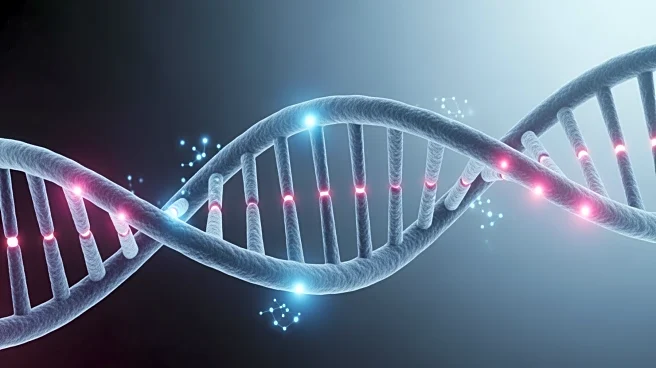What's Happening?
A study published in Nature has identified distinct functional heterogeneity of TP53 R175 mutations in platinum-resistant ovarian cancer. The research profiled TP53 mutations in high-grade serous ovarian cancer (HGSOC)
samples, revealing that missense mutations contribute to platinum resistance. The study found that mutations in specific domains of TP53, such as Loop 3 and β-strand S10, are associated with increased resistance to cisplatin. The findings suggest that these mutations may drive resistance through distinct molecular mechanisms, highlighting potential therapeutic targets for overcoming drug resistance.
Why It's Important?
The study's findings are significant as they provide insights into the molecular mechanisms underlying platinum resistance in ovarian cancer, a major challenge in treatment. Understanding the role of TP53 mutations in drug resistance could lead to the development of targeted therapies, improving outcomes for patients with platinum-resistant ovarian cancer. The research also underscores the importance of personalized medicine, as identifying specific mutations may allow for tailored treatment strategies. This advancement in cancer research could pave the way for more effective interventions and improved survival rates.
What's Next?
Following the study's findings, researchers may focus on developing therapies that target the specific TP53 mutations associated with platinum resistance. Clinical trials could be conducted to test the efficacy of these targeted treatments, potentially leading to new options for patients with resistant ovarian cancer. The healthcare industry may also prioritize genetic profiling of tumors to identify mutations and guide treatment decisions. Continued research in this area could lead to breakthroughs in overcoming drug resistance and improving patient outcomes.











